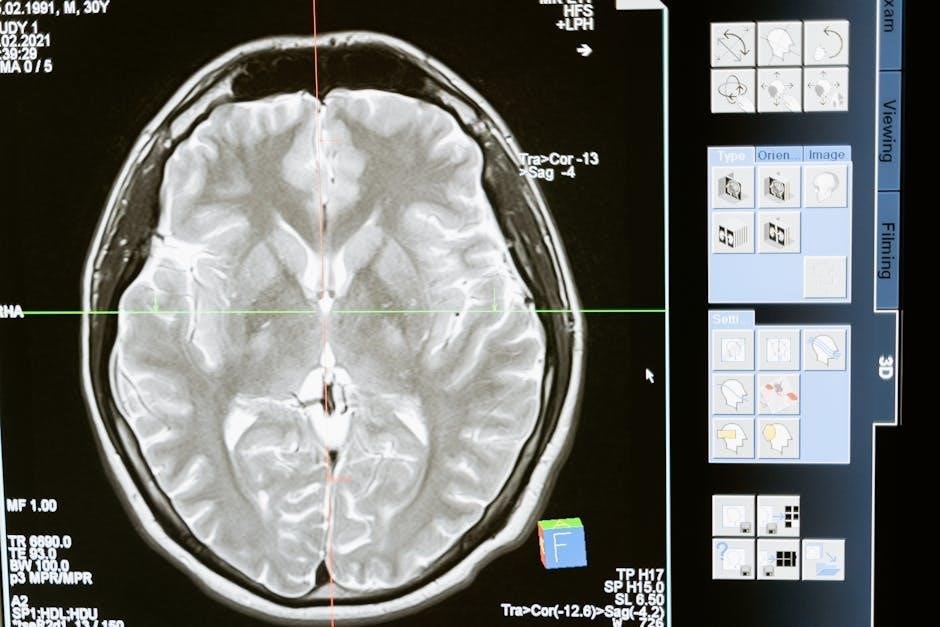DISC analysis is a popular behavioral assessment tool used to understand individual personality styles and improve interpersonal interactions. It categorizes behaviors into four primary styles: Dominance, Influence, Steadiness, and Conscientiousness, helping individuals and teams enhance communication and collaboration. Widely used in personal and professional development, DISC analysis provides insights into strengths and areas for growth, fostering better relationships and workplace efficiency.

1.1 What is DISC Assessment?
DISC assessment is a behavioral profiling tool that identifies individual styles based on four dimensions: Dominance, Influence, Steadiness, and Conscientiousness. It evaluates how people approach tasks, interact with others, and respond to challenges. Rooted in psychology, the assessment provides insights into behavioral preferences, helping individuals understand their strengths and tendencies. Unlike traditional personality tests, DISC focuses on observable behaviors rather than underlying traits, making it practical for personal and professional growth. It is widely used in various settings, including workplace development, team building, and leadership training, to enhance communication and collaboration. The assessment is typically completed through a series of questions, and the results are presented in a detailed report. This report outlines an individual’s primary and secondary behavioral styles, offering actionable insights for improvement. By understanding these styles, individuals can adapt their approach to better align with organizational goals and improve interpersonal relationships. The DISC assessment is a valuable resource for anyone seeking to optimize their performance and foster a more harmonious work environment. It is particularly useful for managers, leaders, and HR professionals looking to build cohesive teams and improve overall productivity. The simplicity and clarity of the DISC model make it accessible to a broad audience, ensuring its effectiveness in diverse contexts. Ultimately, the DISC assessment serves as a powerful tool for self-awareness, enabling individuals to leverage their strengths and address areas for development. Its applications extend beyond professional settings, benefiting personal relationships and lifelong learning. By fostering a deeper understanding of behavioral differences, the DISC assessment promotes empathy, adaptability, and effective communication. This makes it an indispensable asset for anyone striving to achieve their full potential. The insights gained from the DISC assessment can be applied in countless scenarios, from conflict resolution to career development, ensuring its relevance in an ever-evolving world. With its user-friendly format and comprehensive results, the DISC assessment remains a trusted choice for those committed to growth and improvement. Its ability to deliver clear, actionable feedback has solidified its place as a cornerstone of modern behavioral analysis. Whether used for individual development or team dynamics, the DISC assessment continues to empower individuals and organizations alike. Its enduring popularity is a testament to its effectiveness in driving positive change and fostering success. By embracing the principles of DISC, individuals can navigate challenges with confidence and achieve their goals more efficiently. The assessment’s focus on observable behaviors ensures that the insights are both practical and applicable, making it a preferred choice for many. In conclusion, the DISC assessment is a versatile and reliable tool that offers profound benefits for personal and professional development. Its ability to enhance self-awareness and improve interpersonal interactions makes it an essential resource in today’s fast-paced world. With its rich history and proven results, the DISC assessment remains a cornerstone of behavioral analysis, helping individuals and organizations thrive. By leveraging the insights provided by the DISC assessment, people can unlock their full potential and create meaningful, lasting change. The assessment’s enduring relevance and adaptability ensure its continued use across various industries and contexts. It is a testament to the power of understanding human behavior and leveraging it for success. The DISC assessment is more than just a tool—it is a catalyst for growth, empowerment, and achievement. Its impact extends beyond the individual, contributing to a more collaborative and productive environment. By embracing the DISC model, individuals and organizations can foster a culture of understanding and mutual respect, leading to greater overall success. The DISC assessment is a powerful reminder that self-awareness is the first step toward meaningful progress. Its ability to provide clear, actionable insights has made it a trusted ally for those seeking to improve themselves and their surroundings. With its focus on behavioral styles, the DISC assessment offers a unique perspective on personal and professional development. It is a tool that continues to evolve, adapting to the needs of a changing world while remaining true to its core principles. The DISC assessment is a shining example of how psychological insights can be harnessed for practical, real-world applications. Its influence extends far beyond the realm of academia, impacting everyday lives and workplace dynamics. By providing a framework for understanding behavioral differences, the DISC assessment promotes tolerance, adaptability, and effective communication. It is a tool that not only helps individuals grow but also strengthens the bonds within teams and organizations. The DISC assessment is a testament to the transformative power of self-awareness and behavioral understanding. Its ability to deliver profound insights in a clear and accessible manner has made it a beloved resource for countless individuals. Whether used for personal growth or professional development, the DISC assessment remains an indispensable tool in the pursuit of excellence. Its legacy is built on a foundation of empirical research and practical application, ensuring its continued relevance in an ever-changing world. By choosing to embrace the DISC assessment, individuals and organizations can embark on a journey of discovery and improvement, unlocking new potentials and achieving greater success. The DISC assessment is a powerful tool that continues to inspire and empower people worldwide. Its ability to bridge the gap between theory and practice has cemented its place as a leading behavioral analysis instrument. With its focus on actionable insights, the DISC assessment is an essential resource for anyone committed to personal and professional growth. Its enduring popularity is a reflection of its effectiveness in driving positive change and fostering success. By understanding and applying the principles of DISC, individuals can navigate life’s challenges with greater ease and confidence, achieving their goals more efficiently. The DISC assessment is a shining example of how psychological insights can be translated into practical, real-world applications. Its impact on personal and professional development is immeasurable, making it a trusted ally for those seeking to improve themselves and their surroundings. With its rich history and proven results, the DISC assessment remains a cornerstone of behavioral analysis, helping individuals and organizations thrive in today’s fast-paced world. By leveraging the insights provided by the DISC assessment, people can unlock their full potential and create meaningful, lasting change. The assessment’s enduring relevance and adaptability ensure its continued use across various industries and contexts. It is a testament to the power of understanding human behavior and leveraging it for success. The DISC assessment is more than just a tool—it is a catalyst for growth, empowerment, and achievement. Its impact extends beyond the individual, contributing to a more collaborative and productive environment. By embracing the DISC model, individuals and organizations can foster a culture of understanding and mutual respect, leading to greater overall success. The DISC assessment is a powerful reminder that self-awareness is the first step toward meaningful progress. Its ability to provide clear, actionable insights has made it a trusted ally for those seeking to improve themselves and their surroundings. With its focus on behavioral styles, the DISC assessment offers a unique perspective on personal and professional development. It is a tool that continues to evolve, adapting to the needs of a changing world while remaining true to its core principles; The DISC assessment is a shining example of how psychological insights can be harnessed for practical, real-world applications. Its influence extends far beyond the realm of academia, impacting everyday lives and workplace dynamics. By providing a framework for understanding behavioral differences, the DISC assessment promotes tolerance, adaptability, and effective communication. It is a tool that not only helps individuals grow but also strengthens the bonds within teams and organizations. The DISC assessment is a testament to the transformative power of self-awareness and behavioral understanding. Its ability to deliver profound insights in a clear and accessible manner has made it a beloved resource for countless individuals. Whether used for personal growth or professional development, the DISC assessment remains an indispensable tool in the pursuit of excellence. Its legacy is built on a foundation of empirical research and practical application, ensuring its continued relevance in an ever-changing world. By choosing to embrace the DISC assessment, individuals and organizations can embark on a journey of discovery and improvement, unlocking new potentials and achieving greater success. The DISC assessment is a powerful tool that continues to inspire and empower people worldwide. Its ability to bridge the gap between theory and practice has cemented its place as a leading behavioral analysis instrument. With its focus on actionable insights, the DISC assessment is an essential resource for anyone committed to personal and professional growth. Its enduring popularity is a reflection of its effectiveness in driving positive change and fostering success. By understanding and applying the principles of DISC, individuals can navigate life’s challenges with greater ease and confidence, achieving their goals more efficiently. The DISC assessment is a shining example of how psychological insights can be translated into practical, real-world
1.2 Importance of DISC Analysis in Personal and Professional Development
DISC analysis plays a crucial role in personal and professional development by fostering self-awareness and improving interpersonal relationships. It helps individuals identify their strengths and weaknesses, enabling them to communicate more effectively and adapt to different situations. In the workplace, DISC insights enhance collaboration, reduce conflicts, and promote leadership development. By understanding behavioral styles, individuals can tailor their approach to achieve personal goals and contribute to team success, driving overall growth and productivity.

Understanding the DISC Personality Styles
Understanding the DISC personality styles is essential for effective communication and teamwork. Each style—Dominance, Influence, Steadiness, and Conscientiousness—has unique traits that shape behavior and interactions. Recognizing these styles fosters better collaboration and improved workplace dynamics.

2.1 Overview of the Four Personality Types

The DISC model identifies four primary personality types: Dominance (D), Influence (I), Steadiness (S), and Conscientiousness (C). Each type reflects distinct behavioral tendencies, shaping how individuals interact and respond to situations. Understanding these types provides insights into strengths, communication styles, and potential challenges. By recognizing these differences, individuals and teams can adapt behaviors to foster collaboration and achieve shared goals effectively.
2.2 Dominance (D): Traits and Characteristics
Individuals with a Dominance (D) personality type are assertive, results-driven, and confident. They thrive in leadership roles, prioritizing action and decision-making. D types are natural problem-solvers, focusing on achieving goals efficiently. While their strong will can inspire others, they may struggle with patience and delegation. A D-style individual values control and direct communication, often taking charge in group settings to ensure progress and success.
2.3 Influence (I): Traits and Characteristics
Individuals with an Influence (I) personality type are sociable, optimistic, and enthusiastic. They excel at building relationships and inspiring others, often serving as motivators in group settings. I types are naturally expressive, valuing recognition and positive feedback. Their strengths lie in communication and collaboration, though they may struggle with decision-making under pressure. Their warm and engaging nature makes them ideal for roles requiring strong interpersonal connections and team morale.
2.4 Steadiness (S): Traits and Characteristics
Individuals with a Steadiness (S) personality type are known for their reliability, patience, and practicality. They value stability and consistency, often preferring predictable environments. S types are good listeners, loyal, and supportive, excelling in roles requiring attention to detail and long-term commitment. Their calm and composed nature helps maintain harmony in teams, though they may resist sudden changes or high-pressure situations. Their strength lies in providing stability and ensuring tasks are thoroughly completed.
2.5 Conscientiousness (C): Traits and Characteristics
Individuals with a Conscientiousness (C) personality type are analytical, detail-oriented, and organized. They prioritize accuracy, structure, and planning, often excelling in roles requiring precision and high standards. C types are reserved, systematic, and value quality over speed. Their strengths include problem-solving and ensuring tasks are completed to perfection. However, they may struggle with decisiveness or adaptability in fast-paced environments, as they prefer thorough analysis before acting.

History and Development of DISC Assessment
The DISC assessment originated from William Moulton Marston’s theory of human behavior, introduced in the 1920s. Over decades, it evolved into a widely used tool for understanding personality styles and improving interpersonal dynamics, with modern advancements enhancing its application in personal and professional settings.
3.1 Origins of DISC Theory
The DISC theory was first introduced by psychologist William Moulton Marston in his 1928 book, Emotions of Normal People. Marston proposed that human behavior is driven by four primary emotions: Dominance, Influence, Steadiness, and Conscientiousness. His work laid the groundwork for understanding personality styles and their impact on interpersonal interactions. Over time, Marston’s theory evolved into the DISC assessment, a practical tool for self-awareness and behavioral insights, widely used today in personal and professional development.

3.2 Evolution of DISC Assessment Tools

The DISC assessment tools have evolved significantly since their inception. Initially developed in the 1970s, they transitioned from theoretical models to practical assessments. Modern advancements include online platforms and AI-driven interpretations, enhancing accessibility and accuracy. These tools now offer detailed reports, actionable insights, and personalized recommendations, making them invaluable for personal and professional growth. Continuous refinement ensures DISC assessments remain a leading resource for behavioral understanding and development.

Benefits and Applications of DISC Analysis
DISC analysis enhances self-awareness, improves relationships, and boosts workplace efficiency. It aids in effective communication, conflict resolution, and informed decision-making, making it a valuable tool for personal and professional growth.
4.1 Improving Communication Skills
DISC analysis significantly enhances communication by identifying individual behavioral styles. Understanding others’ preferences allows for tailored interactions, reducing misunderstandings. For instance, Dominance styles thrive on directness, while Influence styles prefer collaborative dialogue. This insight fosters empathy, enabling clearer expression of ideas and active listening. By aligning communication strategies with recipients’ styles, individuals build stronger relationships and achieve more effective outcomes in both personal and professional settings, ensuring messages are conveyed and received effectively.
4.2 Enhancing Team Collaboration
DISC analysis fosters team collaboration by revealing diverse behavioral styles within a group. By understanding each member’s strengths, teams can leverage complementary traits, such as the Dominance style’s decisiveness and the Steadiness style’s reliability. This awareness minimizes conflicts and enhances synergy. Teams learn to value differing perspectives, leading to more balanced decision-making and improved problem-solving. Effective collaboration is further strengthened when individuals adapt their approaches to align with shared goals, creating a cohesive and productive work environment.
4.3 Aiding in Recruitment and Hiring
DISC analysis aids in recruitment by identifying candidates whose behavioral styles align with the role and company culture. Employers can assess strengths and preferences to match candidates to specific positions, enhancing team dynamics and communication. This tool ensures effective hiring decisions, fostering a cohesive and productive work environment that benefits the organization, promotes employee retention, supports long-term business goals, and reduces the need for extensive training by selecting well-suited candidates.